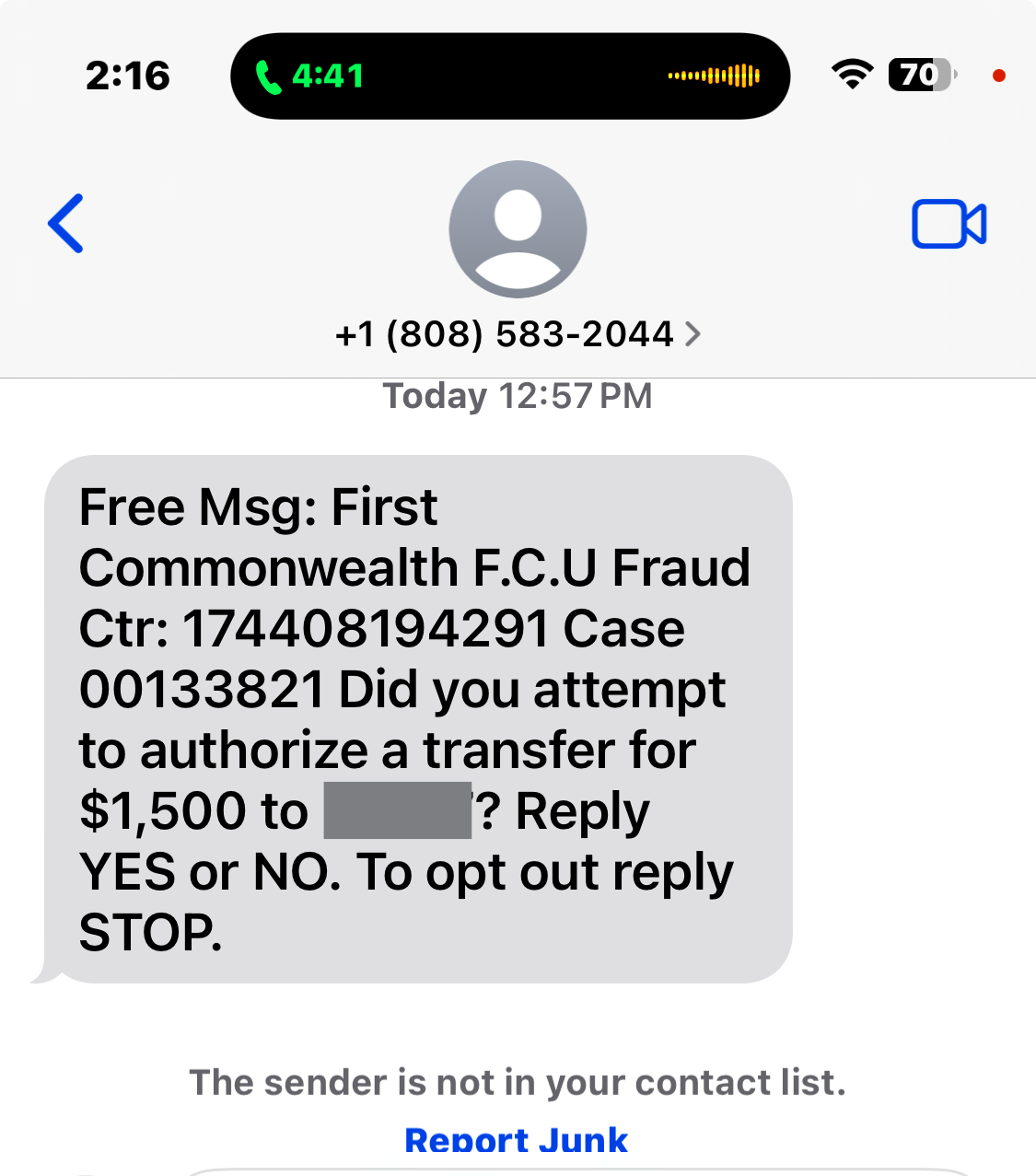With its speed and simplicity, text messaging has seamlessly integrated into our routines, connecting us with friends, family, and businesses. However, this convenience also opens the door to a less welcome element: text message scams. Fraudsters are increasingly turning to SMS to trick individuals into divulging personal information, leading to financial loss and identity theft.
Understanding the Threat
Text message scams, often known as "smishing," involve sending deceptive messages that aim to lure you into divulging personal information such as bank account details, passwords, or Social Security numbers. These messages might masquerade as bank alerts, contests you've supposedly won, or even warnings about unauthorized account activity.
Spotting a Scam
Here are some red flags to watch for:
- Urgency: Messages claiming urgent action required at unusual hours.
- Unknown Numbers: If the message comes from a number that doesn't match the official contact number of the service provider, it's a hint.
- Spelling and Grammar Errors: Professional organizations have editors to ensure error-free communication. Mistakes in the text are a giveaway.
- Suspicious Links: Hover over any links (without clicking) to see the URL. If it doesn't match the business's official website, stay clear.
Smishing Examples




Verifying Legitimate Messages
- Contact the Organization Directly: If you receive a suspicious text, contact the company using a contact number or email from their official website, not the one provided in the text.
- Use Official Apps: Many companies have official apps where notifications about your account will appear. Use these to verify any messages.
- Enable Two-Factor Authentication: This adds an extra layer of security, making it harder for scammers to gain unauthorized access to your accounts.
- Educate Yourself: Stay on top of the latest scam trends by visiting websites like the Federal Trade Commission (FTC).
Protecting Yourself
- Never Share Personal Information: Legitimate businesses will never ask for sensitive information through insecure platforms like SMS.
- Install Security Software: Use comprehensive security software on your mobile device to help protect against malware.
- Regular Updates: Keep your phone's operating system and apps updated to protect against security vulnerabilities.
Take Action
If you suspect that you've received a scam text message, do not respond. Report it to your mobile carrier and the FTC at ReportFraud.ftc.gov. By reporting, you help fight back against these threats and protect others from falling victim.
Awareness is your best defense against SMS scams. By knowing what to look for and how to verify the integrity of the messages you receive, you can protect yourself from these digital predators. Stay alert, stay educated, and keep your personal information secure.




